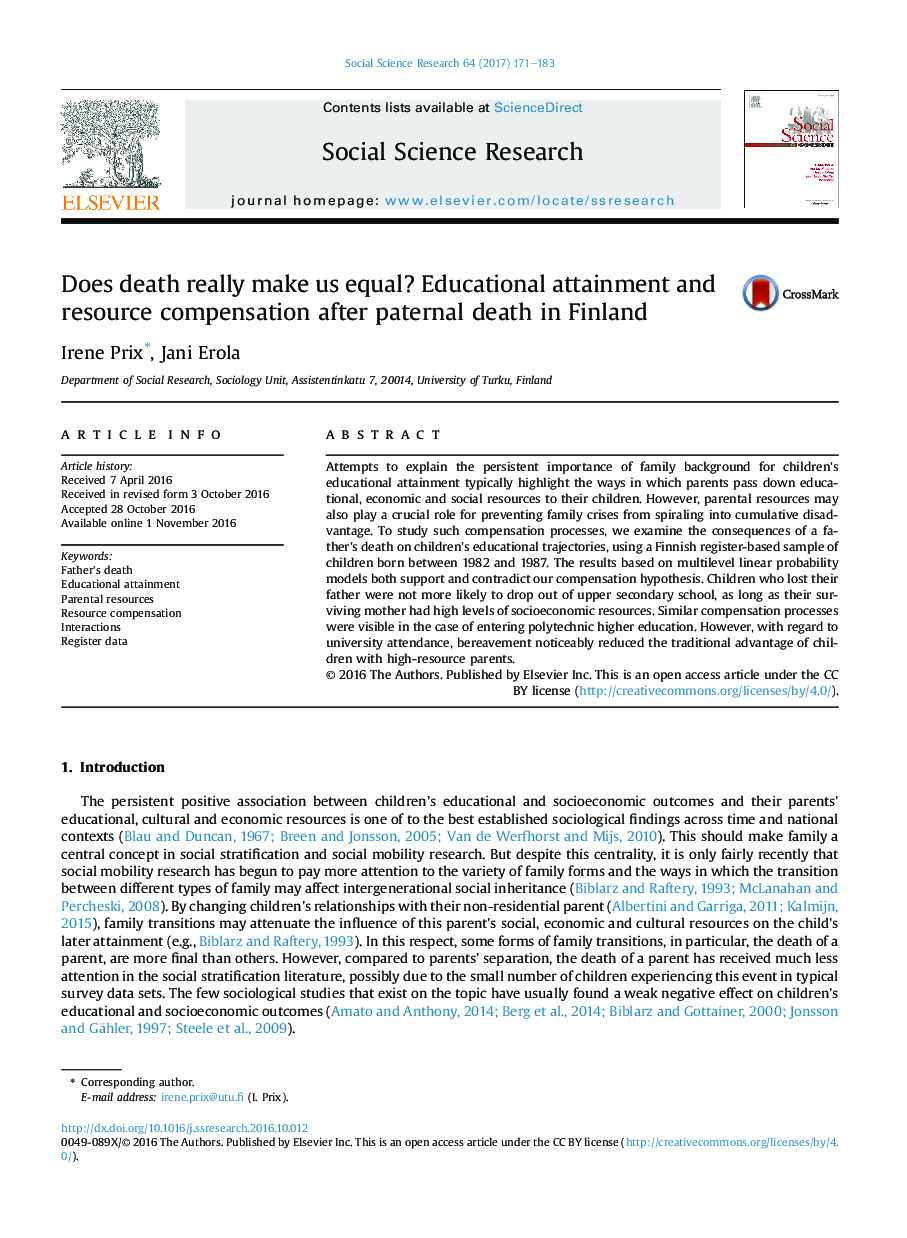| Article ID | Journal | Published Year | Pages | File Type |
|---|---|---|---|---|
| 5047137 | Social Science Research | 2017 | 13 Pages |
Attempts to explain the persistent importance of family background for children's educational attainment typically highlight the ways in which parents pass down educational, economic and social resources to their children. However, parental resources may also play a crucial role for preventing family crises from spiraling into cumulative disadvantage. To study such compensation processes, we examine the consequences of a father's death on children's educational trajectories, using a Finnish register-based sample of children born between 1982 and 1987. The results based on multilevel linear probability models both support and contradict our compensation hypothesis. Children who lost their father were not more likely to drop out of upper secondary school, as long as their surviving mother had high levels of socioeconomic resources. Similar compensation processes were visible in the case of entering polytechnic higher education. However, with regard to university attendance, bereavement noticeably reduced the traditional advantage of children with high-resource parents.
